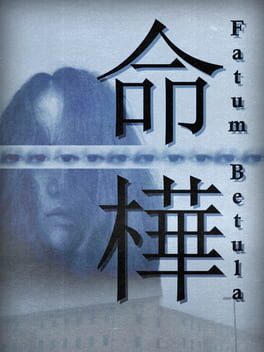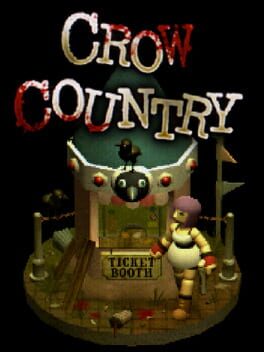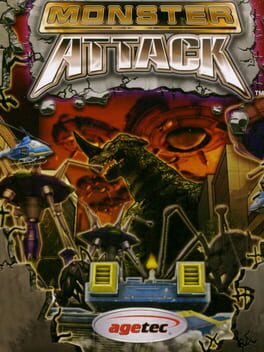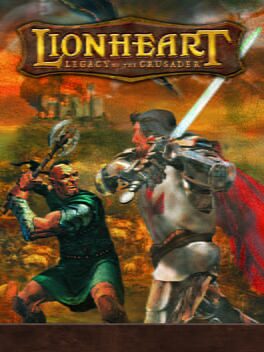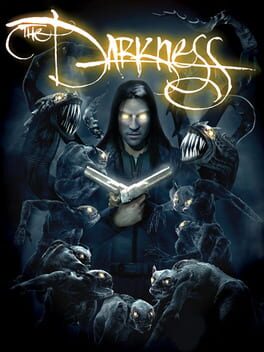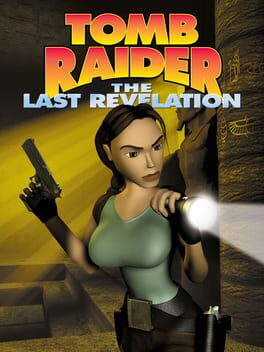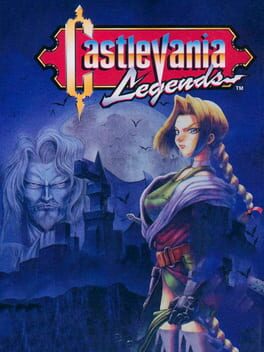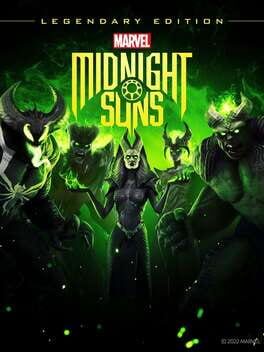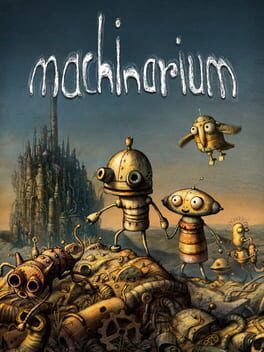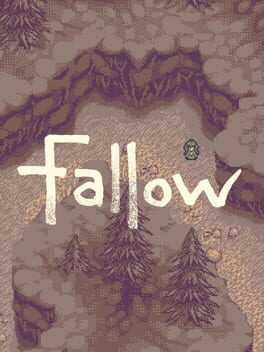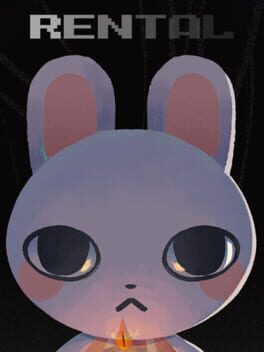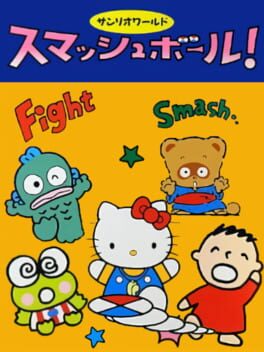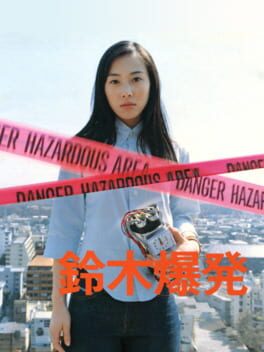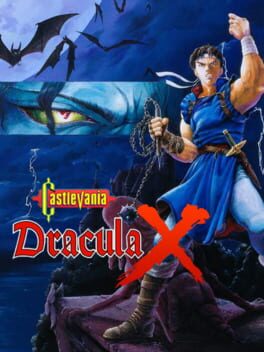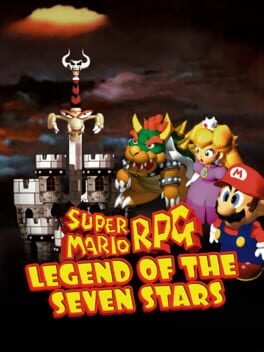mari_maciota
691 Reviews liked by mari_maciota
Fatum Betula
2020
Crow Country
2024
After years of drift towards third-person action, survival horror finally returns to its roots: dunking your entire arm into every single trashcan you can find and showing disobedient vending machines and lockers the righteous fury of your boot heel.
Thank God the indie market is so robust these days, because the increasing homogenization of the modern big budget game and shrinking genre space therein means you wouldn't get proper survival horror otherwise. Crow Country and others like Signalis have been filling that void, but despite clearly playing to the charm of PlayStation era horror with its visuals - especially with its character models, which look as though they've been unearthed from an old Net Yaroze kit - Crow Country is no tired pastiche. It's safe rooms, puzzles, and resource management might harken to a design ethos that was at one point more commonplace, but these elements feel authentic and borne from a place of appreciation and understanding.
Nowhere is this more strongly felt than in the park's layout and the way in which the player navigates it. The amusement park theme allows for neatly defined areas with their own theming and unique attractions, with hidden passages, back rooms, cast tunnels, and a subterranean network serving as the connective tissue between each "land" in a way that feels appropriate for the setting while serving to make the park feel highly interconnected. Crow Country is great at providing a sense of space while conveying where the player should go and what to do next. I never felt lost or completely stumped by a puzzle and was consistently engaged and encouraged to revisit old locations to explore - the part of my brain that starts processing how I want to route my way through a game activated pretty early, and as far as I'm concerned, that's a sign that a survival horror game is living up to the promise of its genre.
The setting is also small. Crow Country is less Disneyland, more Santa's Village, so one way developer SFB Games succeeds in making repeated loops through the park threatening is by gradually introducing more enemies and traps to familiar locations. As the time of day progresses, rain and darkness further obscure the player's vision, and boobytrapped pick-ups begin to litter the map to prey on the sense of trust they've developed with their environment. I sprinted my way through the opening two hours, juked most enemies and picked up any crap I saw laying on the ground. By hour five, I was walking everywhere, stopping frequently, side-eyeing boxes of ammo, and finding that I actually had to conserve what I had due to the increased expectation that I shoot some damn "guests."
I also appreciate Crow Country for telling a complete and coherent story, something I think a lot of horror games have pushed away from. I think the Five Nights series has poisoned the genre and led a lot of other indie horror creators to believe a complex and intentionally vague narrative is the best way to ensure franchise longevity. Keep posing questions, provide no answers. I get it, sometimes it's best to let the audience fill in gaps, you don't want over-explain horror, but in the hands of a weak writer, the "unknown" can just be a euphemism for "nothing."
That's not to say Crow Country fails to raise any questions of its own, rather that in true PSX survival horror fashion, you're given all the clues you need to form the big picture through memos, context, and dialog. How well you do that is entirely dependent on how much you're paying attention, and whether you view Crow Country as being so cliched that its horror can be explained by way of Resident Evil and Silent Hill. I was extremely satisfied by the ending, which leaves just enough unanswered that you'll still have something to think of without feeling like you'll need to consult a YouTube series or read like, seven fucking books and play a dozen more games. An indie horror game with a conclusion that is both cogent and earned, thank christ.
So make the most of your Memorial Day weekend and bring the whole family down to Crow Country. Come ride our newest attraction: The Seven Seas, and discover new types of bacteria. Remember, vets and children under 6 get in free!
Thank God the indie market is so robust these days, because the increasing homogenization of the modern big budget game and shrinking genre space therein means you wouldn't get proper survival horror otherwise. Crow Country and others like Signalis have been filling that void, but despite clearly playing to the charm of PlayStation era horror with its visuals - especially with its character models, which look as though they've been unearthed from an old Net Yaroze kit - Crow Country is no tired pastiche. It's safe rooms, puzzles, and resource management might harken to a design ethos that was at one point more commonplace, but these elements feel authentic and borne from a place of appreciation and understanding.
Nowhere is this more strongly felt than in the park's layout and the way in which the player navigates it. The amusement park theme allows for neatly defined areas with their own theming and unique attractions, with hidden passages, back rooms, cast tunnels, and a subterranean network serving as the connective tissue between each "land" in a way that feels appropriate for the setting while serving to make the park feel highly interconnected. Crow Country is great at providing a sense of space while conveying where the player should go and what to do next. I never felt lost or completely stumped by a puzzle and was consistently engaged and encouraged to revisit old locations to explore - the part of my brain that starts processing how I want to route my way through a game activated pretty early, and as far as I'm concerned, that's a sign that a survival horror game is living up to the promise of its genre.
The setting is also small. Crow Country is less Disneyland, more Santa's Village, so one way developer SFB Games succeeds in making repeated loops through the park threatening is by gradually introducing more enemies and traps to familiar locations. As the time of day progresses, rain and darkness further obscure the player's vision, and boobytrapped pick-ups begin to litter the map to prey on the sense of trust they've developed with their environment. I sprinted my way through the opening two hours, juked most enemies and picked up any crap I saw laying on the ground. By hour five, I was walking everywhere, stopping frequently, side-eyeing boxes of ammo, and finding that I actually had to conserve what I had due to the increased expectation that I shoot some damn "guests."
I also appreciate Crow Country for telling a complete and coherent story, something I think a lot of horror games have pushed away from. I think the Five Nights series has poisoned the genre and led a lot of other indie horror creators to believe a complex and intentionally vague narrative is the best way to ensure franchise longevity. Keep posing questions, provide no answers. I get it, sometimes it's best to let the audience fill in gaps, you don't want over-explain horror, but in the hands of a weak writer, the "unknown" can just be a euphemism for "nothing."
That's not to say Crow Country fails to raise any questions of its own, rather that in true PSX survival horror fashion, you're given all the clues you need to form the big picture through memos, context, and dialog. How well you do that is entirely dependent on how much you're paying attention, and whether you view Crow Country as being so cliched that its horror can be explained by way of Resident Evil and Silent Hill. I was extremely satisfied by the ending, which leaves just enough unanswered that you'll still have something to think of without feeling like you'll need to consult a YouTube series or read like, seven fucking books and play a dozen more games. An indie horror game with a conclusion that is both cogent and earned, thank christ.
So make the most of your Memorial Day weekend and bring the whole family down to Crow Country. Come ride our newest attraction: The Seven Seas, and discover new types of bacteria. Remember, vets and children under 6 get in free!
Monster Attack
2003
Para aqueles que não estão cientes, Lionheart: Legacy of the Crusaders é um CRPG oldschool com visão isométrica, um dos últimos antes do declínio do gênero, ao lado de The Temple of Elemental Evil, outro jogo fantástico e o qual pretendo, muito em breve, rejogar e avaliar por aqui! Retornando a Lionheart, o jogo adota o mesmo sistema de combate encontrado nos dois primeiros Fallouts, o sistema SPECIAL, e, embora não figure entre os meus sistemas favoritos (Pathfinder e AD&D 2ª edição ocupam essa posição), minha única crítica nesse aspecto está relacionada a algo que ocorre em seu end-game, momento em que o jogo torna-se praticamente um pseudo-hack and slash. O que acontece é um favorecimento de certas builds em detrimento de outras. Em particular, builds melee parecem ser preferidas em uma boa porcentagem da segunda metade do jogo, embora haja ocasiões pontuais em que builds ranged parecem ser as únicas viáveis naquele ponto, o que evidencia alguns pontos fracos de game design.
Quanto a sua apresentação visual, ela é espetacular: o charme dos CRPGs do final dos anos 90 e início dos anos 2000 está presente em Lionheart. Tanto a direção de arte quanto os gráficos são excelentes; no entanto, Lionheart peca por não ter suporte nativo para resoluções mais altas, o que, de certo modo, é compreensível, dada sua idade. Sua ambientação e a presença de diversas personalidades históricas, apresentadas com zero acurácia histórica, são aspectos que merecem destaque e que dão um charme e um tom bastante único para o jogo. Quanto à sua história e narrativa, ambas são razoáveis, sem se destacar como em Baldur's Gate I & II ou em Planescape Torment, e seriam aspectos bastante sólidos do jogo caso os desenvolvedores tivessem dado mais agência ao jogador pois, apesar de se tratar de um CRPG, o que me pareceu é que nossas escolhas pouco importam para o desenrolar do jogo. Por fim, dito tudo isso, o meu veredito é que Lionheart: Legacy of the Crusader trata-se de um excelente jogo para àqueles apaixonados por RPGs, principalmente os CRPGs mais old school. Recomendo fortemente!
Quanto a sua apresentação visual, ela é espetacular: o charme dos CRPGs do final dos anos 90 e início dos anos 2000 está presente em Lionheart. Tanto a direção de arte quanto os gráficos são excelentes; no entanto, Lionheart peca por não ter suporte nativo para resoluções mais altas, o que, de certo modo, é compreensível, dada sua idade. Sua ambientação e a presença de diversas personalidades históricas, apresentadas com zero acurácia histórica, são aspectos que merecem destaque e que dão um charme e um tom bastante único para o jogo. Quanto à sua história e narrativa, ambas são razoáveis, sem se destacar como em Baldur's Gate I & II ou em Planescape Torment, e seriam aspectos bastante sólidos do jogo caso os desenvolvedores tivessem dado mais agência ao jogador pois, apesar de se tratar de um CRPG, o que me pareceu é que nossas escolhas pouco importam para o desenrolar do jogo. Por fim, dito tudo isso, o meu veredito é que Lionheart: Legacy of the Crusader trata-se de um excelente jogo para àqueles apaixonados por RPGs, principalmente os CRPGs mais old school. Recomendo fortemente!
The Darkness
2007
This review contains spoilers
Jackie Estacado is not what I expect of an FPS protagonist. My supposed "golden age" of the genre (1996-2004) houses very few even comparable to him, and the era thereafter was by and large occupied by Dickhead McWarguys. Well then, what makes him so different?
He's a dickhead with depth.
For all this "vengeance for Jenny" talk, Jackie acts like one selfish bastard. I understand that the trauma of being exposed to abuse and mafia life so young is responsible for his cold demeanor. I'm not doubting that he loved his girl. I am, however, questioning the motive behind the bloodlust that he indulges in. Jenny seems to fade further out of sight as the game progresses, and never once does he stop to question if she even would have wanted this.
I'd like to pose a theory: the titular Darkness is a metaphor. As Chandler mentioned in his review, the only people who acknowledge its existence are its victims, Paulie, Shrote, and Jackie himself. It's plausible that it may be nothing more than Jackie's own self-righteousness, hatred, and hunger for power. Just look at how the game ends: Jackie slaughtering and destroying in a (literal, at points) blind rage and becoming the new mob boss. The moment the Darkness becomes "one" with our main man is the moment he crushed the final obstacle in his conquest. I don't think this scene is supposed to be any kind of triumph! It isn't "badass", it's an emotionally stunted and traumatized manchild with a gun killing a sociopath. I also find it interesting that the only main characters to acknowledge the Darkness are Shrote and Paulie, the other two killer manchildren whose selfish impulses - their own Darknesses, perhaps - propelled them into positions of power. In the end, all Jackie accomplished was making himself like the men he hated the most. "War, your gift. War, your heritage. War, your burden."
So yeah, this edgy Xbox FPS based off a fucking Garth Ennis comic is a precision takedown of mafia culture via a Mike Patton demon. Remind me again why this is sitting at a 3.5?
He's a dickhead with depth.
For all this "vengeance for Jenny" talk, Jackie acts like one selfish bastard. I understand that the trauma of being exposed to abuse and mafia life so young is responsible for his cold demeanor. I'm not doubting that he loved his girl. I am, however, questioning the motive behind the bloodlust that he indulges in. Jenny seems to fade further out of sight as the game progresses, and never once does he stop to question if she even would have wanted this.
I'd like to pose a theory: the titular Darkness is a metaphor. As Chandler mentioned in his review, the only people who acknowledge its existence are its victims, Paulie, Shrote, and Jackie himself. It's plausible that it may be nothing more than Jackie's own self-righteousness, hatred, and hunger for power. Just look at how the game ends: Jackie slaughtering and destroying in a (literal, at points) blind rage and becoming the new mob boss. The moment the Darkness becomes "one" with our main man is the moment he crushed the final obstacle in his conquest. I don't think this scene is supposed to be any kind of triumph! It isn't "badass", it's an emotionally stunted and traumatized manchild with a gun killing a sociopath. I also find it interesting that the only main characters to acknowledge the Darkness are Shrote and Paulie, the other two killer manchildren whose selfish impulses - their own Darknesses, perhaps - propelled them into positions of power. In the end, all Jackie accomplished was making himself like the men he hated the most. "War, your gift. War, your heritage. War, your burden."
So yeah, this edgy Xbox FPS based off a fucking Garth Ennis comic is a precision takedown of mafia culture via a Mike Patton demon. Remind me again why this is sitting at a 3.5?
meu primeiro contato com o jogo foi em 2008, lembro de ter passado horas explorando e me fascinar. considero este um dos mais desafiadores da franquia e apesar do lançamento em 1999, a atenção aos detalhes ambientais, como a arquitetura e os hieróglifos, tornaram o ambiente muito autêntico e realista. é incrível olhar para este jogo hoje em dia e perceber o quanto ele é memorável.
Castlevania Legends
1997
Eu gostaria muito de entender o que se passou na cabeça dos desenvolvedores pra considerarem criar essa horripilosidade. Não apenas o pq de considerar lançar um jogo para Gameboy 8 meses dps do lançamento da pérola de ouro da série, chamada Symphony of the Night, como também considerar fazer um 3° jogo para Gameboy, ignorando totalmente as adaptações e melhorias de Belmont's Revenge (que é o Castlevania definitivo de Gameboy) e fazendo um jogo tão limitado quanto o The Adventure e surpreendentemente conseguindo ser AINDA PIOR!!!
A gameplay é lenta, limitada, cheia de inimigos que aparecem do nada e são difíceis de desviar e, o pior de tudo, os mapas possuem áreas opcionais que envolvem atravessar até duas ou três telas de fase a mais para pegar certos itens e então vc tem q voltar todas as telas extras dnv para prosseguir a fase. Beleza, isso serve para pegar as relíquias que desbloqueiam o final verdadeiro, compreensível - mas o verdadeiro problema está nas partes extras chatas e cheias de inimigos que respawnam que, no final delas, vc SÓ CONSEGUE UM ITEM DE RECUPERAR VIDA!!!
E UM DETALHE MUITO IMPORTANTE QUANTO A ISSO: Quando vc mata um boss, vc ganha uma habilidade nova, e a segunda habilidade que vc ganha É UMA HABILIDADE DE RECUPERAR VIDA! ENTÃO QUAL É O SENTIDO DE DESVIAR POR 2-3 TELAS INTEIRAS LOTADAS DE INIMIGOS PURAMENTE PARA PEGAR VIDA????? E UM ITEM QUE RECUPERA SÓ METADE DA VIDA AINDA, ENQUANTO A HABILIDADE RECUPERA TUDO!
E, outra coisa, a ideia de ter diálogos é legal, mas cara, os diálogos desse jogo são exageradamente grandes e monótonos, a ponto de parecer uma fanfic amadora.
Sério cara, quem diabos considerou como válidas todas essas ideias horríveis? É foda dizer isso, mas esse Castlevania não passa de uma gigantesca piada. Só passem reto desse negócio, pelo bem de vcs.
A gameplay é lenta, limitada, cheia de inimigos que aparecem do nada e são difíceis de desviar e, o pior de tudo, os mapas possuem áreas opcionais que envolvem atravessar até duas ou três telas de fase a mais para pegar certos itens e então vc tem q voltar todas as telas extras dnv para prosseguir a fase. Beleza, isso serve para pegar as relíquias que desbloqueiam o final verdadeiro, compreensível - mas o verdadeiro problema está nas partes extras chatas e cheias de inimigos que respawnam que, no final delas, vc SÓ CONSEGUE UM ITEM DE RECUPERAR VIDA!!!
E UM DETALHE MUITO IMPORTANTE QUANTO A ISSO: Quando vc mata um boss, vc ganha uma habilidade nova, e a segunda habilidade que vc ganha É UMA HABILIDADE DE RECUPERAR VIDA! ENTÃO QUAL É O SENTIDO DE DESVIAR POR 2-3 TELAS INTEIRAS LOTADAS DE INIMIGOS PURAMENTE PARA PEGAR VIDA????? E UM ITEM QUE RECUPERA SÓ METADE DA VIDA AINDA, ENQUANTO A HABILIDADE RECUPERA TUDO!
E, outra coisa, a ideia de ter diálogos é legal, mas cara, os diálogos desse jogo são exageradamente grandes e monótonos, a ponto de parecer uma fanfic amadora.
Sério cara, quem diabos considerou como válidas todas essas ideias horríveis? É foda dizer isso, mas esse Castlevania não passa de uma gigantesca piada. Só passem reto desse negócio, pelo bem de vcs.
Rapidly hit the point where the thought of booting up Marvel's Midnight Suns felt like punching in to work, and that's a damn shame considering how much of an X-Com mark I am. I signed up for tactical card-based RPG gameplay and base management, not a social sim with uncarbonated, room temp Joss Wheadon writing.
Every character here is reduced to one or two notable elements that are constantly harped on. Tony Stark, played by Josh Keaton under explicit instructions to do his best Robert Downey Jr. impression, is constantly making cracks about having to operate out of a scary magical castle. Dr. Strange's magical prowess is constantly under scrutiny, a dotard in a room of quippy millennials - "Dr. Spooky," they call him. Sister Grimm rearranged one of the clubs' acronyms so it spelled out "EMO KIDS" because she's so clever and quirky. Peter Parker LOVES pizza, can SOMEBODY please get Peter Parker a slice of pie!? No deep dish, it's gotta be New Yawk style, wooo, love da big apple!
Another way to put it would be if the beach scene in Persona 5 kicked off a running gag where characters had to constantly bring up Yusuke buying lobsters and equate some part of every conversation involving Yusuke to lobsters for the rest of the game. Just... close your eyes and imagine that. Lean back, get comfortable, absorb yourself in how "good" that would be. Congratulations, I just saved you $20.
I remembered Deadpool was in this game and that was the point I decided I needed to get out. It's not that it's overly snarky or self-depreciating in the same obnoxious, overbearing way the MCU is, Midnight Suns is to its credit more confident in its setting, but it's just so lame. Unfortunately, socializing with your team is a major component of the game - so much so that it's disproportionate to the actual tactical RPG elements - and unless you're willing to mash through all the tiresome character dialog to get to the conversation options that let you scream "do you ever shut up" and tank your friendship rating, you'll just have to put up with it.
Every day you have to run around this castle talking to heroes to raise their bonds, break down materials, craft new cards, fuse duplicates together, train with heroes to get daily stat buffs, send heroes you aren't using on away missions... Navigation around the castle grounds feels cumbersome, and you have so many tasks to do before you're ready to head out that combat starts to feel secondary against the lethargic pace of base management.
The tactical card-combat? It's fine. There's not really a whole lot I have to say about it. The early missions are decently challenging, and each character comes with their own attributes and pool of cards that helps give them defined utility in battle, like Sister Grimm, who is essentially your defacto buff/debuffer in the early game. Combat encounters still feel somewhat samey, but I was only about five hours in when I bailed, I'd have to imagine they get more diverse over time.
The most I got out of Midnight Sun was when I went on a nighttime walk with Blade and he mentioned not being able to see something, to which the protagonist quipped "that's because you wear your sunglasses at night."
"Hey, it's a fashion choice."
Blade was not wearing his sunglasses. I gifted him a skull I found on the ground. He seemed to like it.
Every character here is reduced to one or two notable elements that are constantly harped on. Tony Stark, played by Josh Keaton under explicit instructions to do his best Robert Downey Jr. impression, is constantly making cracks about having to operate out of a scary magical castle. Dr. Strange's magical prowess is constantly under scrutiny, a dotard in a room of quippy millennials - "Dr. Spooky," they call him. Sister Grimm rearranged one of the clubs' acronyms so it spelled out "EMO KIDS" because she's so clever and quirky. Peter Parker LOVES pizza, can SOMEBODY please get Peter Parker a slice of pie!? No deep dish, it's gotta be New Yawk style, wooo, love da big apple!
Another way to put it would be if the beach scene in Persona 5 kicked off a running gag where characters had to constantly bring up Yusuke buying lobsters and equate some part of every conversation involving Yusuke to lobsters for the rest of the game. Just... close your eyes and imagine that. Lean back, get comfortable, absorb yourself in how "good" that would be. Congratulations, I just saved you $20.
I remembered Deadpool was in this game and that was the point I decided I needed to get out. It's not that it's overly snarky or self-depreciating in the same obnoxious, overbearing way the MCU is, Midnight Suns is to its credit more confident in its setting, but it's just so lame. Unfortunately, socializing with your team is a major component of the game - so much so that it's disproportionate to the actual tactical RPG elements - and unless you're willing to mash through all the tiresome character dialog to get to the conversation options that let you scream "do you ever shut up" and tank your friendship rating, you'll just have to put up with it.
Every day you have to run around this castle talking to heroes to raise their bonds, break down materials, craft new cards, fuse duplicates together, train with heroes to get daily stat buffs, send heroes you aren't using on away missions... Navigation around the castle grounds feels cumbersome, and you have so many tasks to do before you're ready to head out that combat starts to feel secondary against the lethargic pace of base management.
The tactical card-combat? It's fine. There's not really a whole lot I have to say about it. The early missions are decently challenging, and each character comes with their own attributes and pool of cards that helps give them defined utility in battle, like Sister Grimm, who is essentially your defacto buff/debuffer in the early game. Combat encounters still feel somewhat samey, but I was only about five hours in when I bailed, I'd have to imagine they get more diverse over time.
The most I got out of Midnight Sun was when I went on a nighttime walk with Blade and he mentioned not being able to see something, to which the protagonist quipped "that's because you wear your sunglasses at night."
"Hey, it's a fashion choice."
Blade was not wearing his sunglasses. I gifted him a skull I found on the ground. He seemed to like it.
Machinarium
2009
Sem dúvidas, impossível rejeitar o carisma de suas ilustrações, e os outros méritos da direção artística e trilha sonora também são gigantescos. Embora deteste o sistema comumente adotado por adventure games antigos de “clique no pixel exato para TENTAR realizar uma ação”, era sempre divertido ver o robôzinho chacoalhar a cabeça diante da minha aparente estupidez.
Fallow
2021
This review contains spoilers
i'm still marinating my emotions. please forgive me if this is half-baked
a eulogy?
i don't mean to join the ranks of the seemingly ubiquitous black dresses fans who feel the need to evaluate the work of ada rook through the lens of that one project. but today the band's final album, laughingfish, released and i was brought back to this game once again. i said in my last review that fallow is "haunting" me no matter how much i play or write about it, and clearly that's still true.
if there's been one constant in the anything-but-consistent past 4 years of my life, it'd be the work of ada rook. her music has soundtracked 4 years of queer discovery and struggling; in particular, i favored her music with black dresses (same as pretty much everyone else on this planet, apparently). even the darkest pieces the duo made were shining beacons of hope from two incredible queer women pushing through the struggles of life and making art out of it. now, that's all gone, and my tiny emo heart is in shambles.
the hopelessness of laughingfish is ever-pervasive. i know that the album acknowledges hope, that the end of everything you ever loved is the beginning of the future. it's still the end of everything you've ever loved. and in a damn near catatonic state on the floor of my garage after i finished listening, i was reminded of fallow. fallow is 5 hours spent grieving before the end arrives. the final scene of the game sees our character, now named "harriet" (is she the same as isa? i don't know) on The Island On The Cleft: somewhere new for a new beginning. a girl you met moments prior asks her what she's going to do now, and harriet simply responds, "i don't know". i don't expect her to, really. i wouldn't either.
a new beginning punctuated by the aimlessness of a lonely and tattered heart. still, forever we push on.
edit: i don't think that hopelessness is the message of fallow or laughingfish. i was caught up in the sadness of the goodbye, which is... fitting. i have it in me to be more optimistic now, about the future n stuff, and i hope harriet does too. i think the endings of both laughingfish and fallow are brighter than i gave them credit for. idk. just didn't want to end this on a downer note.
edit 2: the album still makes my body feel harder to move when i listen to it.
a eulogy?
i don't mean to join the ranks of the seemingly ubiquitous black dresses fans who feel the need to evaluate the work of ada rook through the lens of that one project. but today the band's final album, laughingfish, released and i was brought back to this game once again. i said in my last review that fallow is "haunting" me no matter how much i play or write about it, and clearly that's still true.
if there's been one constant in the anything-but-consistent past 4 years of my life, it'd be the work of ada rook. her music has soundtracked 4 years of queer discovery and struggling; in particular, i favored her music with black dresses (same as pretty much everyone else on this planet, apparently). even the darkest pieces the duo made were shining beacons of hope from two incredible queer women pushing through the struggles of life and making art out of it. now, that's all gone, and my tiny emo heart is in shambles.
the hopelessness of laughingfish is ever-pervasive. i know that the album acknowledges hope, that the end of everything you ever loved is the beginning of the future. it's still the end of everything you've ever loved. and in a damn near catatonic state on the floor of my garage after i finished listening, i was reminded of fallow. fallow is 5 hours spent grieving before the end arrives. the final scene of the game sees our character, now named "harriet" (is she the same as isa? i don't know) on The Island On The Cleft: somewhere new for a new beginning. a girl you met moments prior asks her what she's going to do now, and harriet simply responds, "i don't know". i don't expect her to, really. i wouldn't either.
a new beginning punctuated by the aimlessness of a lonely and tattered heart. still, forever we push on.
edit: i don't think that hopelessness is the message of fallow or laughingfish. i was caught up in the sadness of the goodbye, which is... fitting. i have it in me to be more optimistic now, about the future n stuff, and i hope harriet does too. i think the endings of both laughingfish and fallow are brighter than i gave them credit for. idk. just didn't want to end this on a downer note.
edit 2: the album still makes my body feel harder to move when i listen to it.
Rental
2022
This review contains spoilers
Feels good to play a game vaguely Inspired by silent hill and that meaning snarky teen girl protag and not dead wives.
Really like the protag's design she's sooooo cute! Unfortunately just feel's really empty even for a 20 minute thing. Feels like the kinda thing that's short not because that's all the time they needed to execute everything they wanted to do but because it was a week long game jam project. I'm sure game jams are a fun activity but sometimes that shit needs more time in the oven!!!! the maze was cool. idk what I'm supposed to feel when green filter man comes on screen. Making me play it twice to see like 10 extra seconds of dialogue is laaame.
Really like the protag's design she's sooooo cute! Unfortunately just feel's really empty even for a 20 minute thing. Feels like the kinda thing that's short not because that's all the time they needed to execute everything they wanted to do but because it was a week long game jam project. I'm sure game jams are a fun activity but sometimes that shit needs more time in the oven!!!! the maze was cool. idk what I'm supposed to feel when green filter man comes on screen. Making me play it twice to see like 10 extra seconds of dialogue is laaame.
Man, I'm in a real rough spot. Family members are getting older and sicker, I'm overworked, not getting enough sleep... I need a real pick-me-up, something that's easy to play and has a lot of charm. Help me, Hello Kitty!
Gets cracked in the nose by a disc travelling at 95MPH, completely caving in my facial bones.
hello kitty ,why. ..........?
Like Tetris Battle Gaiden and Windjammers, Sanrio World Smash Ball! is a game I was first exposed to through Giant Bomb, where it ended up in their rotation of competitive multiplayer games on more than one occasion. And I can see why. Even sticking to the single-player mode, Smash Ball's head-to-head Breakout-inspired gameplay is addictive, and in its later stages, weirdly demanding.
You have precisely two moves: hit disc and hit disc harder, and while the early game is such a breeze it can be played on autopilot, the later stages will see you smacking that disc around an inch from your opponent's faces - which the stage itself is designed to resemble, as if Keroppi's smug visage was there to mock you - all in a frantic bid to keep it from your side of the court, which has progressively been designed to put you at a disadvantage. This is still a kid's game at its core, so the difficulty never excels to the point of brutality, but there's a curve here that keeps Smash Ball surprisingly engaging.
I hope one day I can find someone willing to sit down and actually play Sanrio World Smash Ball! with me, I think that'd be cool, I wish I had friends like Hello Kit-
Gets hit in the mouth by a charged shot that ricochets off of and back into my teeth several times
uuugh i thinki n eed to go to the hompsital
Gets cracked in the nose by a disc travelling at 95MPH, completely caving in my facial bones.
hello kitty ,why. ..........?
Like Tetris Battle Gaiden and Windjammers, Sanrio World Smash Ball! is a game I was first exposed to through Giant Bomb, where it ended up in their rotation of competitive multiplayer games on more than one occasion. And I can see why. Even sticking to the single-player mode, Smash Ball's head-to-head Breakout-inspired gameplay is addictive, and in its later stages, weirdly demanding.
You have precisely two moves: hit disc and hit disc harder, and while the early game is such a breeze it can be played on autopilot, the later stages will see you smacking that disc around an inch from your opponent's faces - which the stage itself is designed to resemble, as if Keroppi's smug visage was there to mock you - all in a frantic bid to keep it from your side of the court, which has progressively been designed to put you at a disadvantage. This is still a kid's game at its core, so the difficulty never excels to the point of brutality, but there's a curve here that keeps Smash Ball surprisingly engaging.
I hope one day I can find someone willing to sit down and actually play Sanrio World Smash Ball! with me, I think that'd be cool, I wish I had friends like Hello Kit-
Gets hit in the mouth by a charged shot that ricochets off of and back into my teeth several times
uuugh i thinki n eed to go to the hompsital
Suzuki Bakuhatsu
2000
Cinematic puzzlery before we were ready. Suzuki Bakuhatsu astounds with its production values, abound with turn of the millennium photography, set dressing, apparel, and unbridled contentment. For as harrowing as the premise is, that the mundane has been overtaken by sophisticated explosives, the often devil-may-care attitude of Rin Ozawa's character suggests a subconscious understanding that this danger could never really happen. This is a world before the War on Terror, before we were made to feel unsafe by government and terrorists alike. Why not watch a bomb defusal expert hurriedly carry out her craft on stage, how could the worst possibly come to pass?
These vague plot points and extensive production are indicative of Sol and Enix's attempt to break the conventions of the stagnant puzzle genre. Tetris and Panel de Pon with new coats of paint were not enough. Kula World and iQ weren't thinking big enough. If the medium was to mature into a legitimate mode of storytelling (or at least entertainment) it needed bombast across all genres. The puzzle game could (and is shown to be) so much more than the puzzles themselves. It can be as tense as a thriller, as lighthearted as a situation comedy. Yet the puzzles too remain a highlight, with fully realised, complexly nesting polygonal designs which are explored in the round in a step above Resident Evil or Skyrim. The bombs are as the puzzle boxes seen in Fireproof Games' The Room, a series of self-affecting pieces, more involved than they let on. Suzuki Bakuhatsu simply would not work in a two-dimensional space.
Tomoyuki Tanaka's shibuya-kei interstitial compositions are as much a highlight as Rin Ozawa's humming during defusal, and the cast and crew are dripping with talent. On the variety show Suzuki inexplicably becomes a part of, we see Yukiko Ehara and YOU THE ROCK★ flanking Minami Shirakawa. Asami Imajuku, Haruichiban, and Kiyohiko Shibukawa make surprise appearances as well. Though not quite a who's-who of the Japanese entertainment industry, these familiar faces (especially two decades after release) demonstrate that Suzuki Bakuhatsu was all about bombast. In a world before Portal and Catherine, however, perhaps we were unprepared to accept that puzzle games could be something more.
These vague plot points and extensive production are indicative of Sol and Enix's attempt to break the conventions of the stagnant puzzle genre. Tetris and Panel de Pon with new coats of paint were not enough. Kula World and iQ weren't thinking big enough. If the medium was to mature into a legitimate mode of storytelling (or at least entertainment) it needed bombast across all genres. The puzzle game could (and is shown to be) so much more than the puzzles themselves. It can be as tense as a thriller, as lighthearted as a situation comedy. Yet the puzzles too remain a highlight, with fully realised, complexly nesting polygonal designs which are explored in the round in a step above Resident Evil or Skyrim. The bombs are as the puzzle boxes seen in Fireproof Games' The Room, a series of self-affecting pieces, more involved than they let on. Suzuki Bakuhatsu simply would not work in a two-dimensional space.
Tomoyuki Tanaka's shibuya-kei interstitial compositions are as much a highlight as Rin Ozawa's humming during defusal, and the cast and crew are dripping with talent. On the variety show Suzuki inexplicably becomes a part of, we see Yukiko Ehara and YOU THE ROCK★ flanking Minami Shirakawa. Asami Imajuku, Haruichiban, and Kiyohiko Shibukawa make surprise appearances as well. Though not quite a who's-who of the Japanese entertainment industry, these familiar faces (especially two decades after release) demonstrate that Suzuki Bakuhatsu was all about bombast. In a world before Portal and Catherine, however, perhaps we were unprepared to accept that puzzle games could be something more.
Um downgrade monstruoso do Rondo of Blood, a nível de ser ofensivo com a versão original.
Mesmo tendo sido lançado 2 anos após o Rondo of Blood, todos os aspectos do jogo são inferiores - o que era algo de se imaginar, já que o jogo estava sendo adaptado de PC Engine para SNES - mas não apenas isso como a gameplay foi muito mal adaptada. Há diversos problemas irritantes de hitbox, a movimentação está mais limitada e muitas áreas e fases foram remodeladas de uma maneira ruim e chata de passar. Isso sem falar do aumento desequilibrado de dificuldade de várias partes do jogo.
O mais divertido de tudo, é que esse jogo foi lançado 4 anos DEPOIS do Super Castlevania IV (também de SNES) e ainda assim conseguiu ser inferior e mais limitado que ele na grande maioria dos aspectos.
AH, E MAIS UM DETALHE MUITO IMPORTANTE: NÃO DÁ PRA JOGAR COM A MARIA RENARD NESSA VERSÃO!!!
NA MORAL, COMO DEIXAR PASSAR IMPUNE UM VACILO DESSE NÍVEL???
Sério, recomendo fortemente passar reto desse versão, pq, vou ser bem sincero, essa é uma versão do Rondo of Blood que ninguém iria sentir a mínima falta se não tivesse existido.
Mesmo tendo sido lançado 2 anos após o Rondo of Blood, todos os aspectos do jogo são inferiores - o que era algo de se imaginar, já que o jogo estava sendo adaptado de PC Engine para SNES - mas não apenas isso como a gameplay foi muito mal adaptada. Há diversos problemas irritantes de hitbox, a movimentação está mais limitada e muitas áreas e fases foram remodeladas de uma maneira ruim e chata de passar. Isso sem falar do aumento desequilibrado de dificuldade de várias partes do jogo.
O mais divertido de tudo, é que esse jogo foi lançado 4 anos DEPOIS do Super Castlevania IV (também de SNES) e ainda assim conseguiu ser inferior e mais limitado que ele na grande maioria dos aspectos.
AH, E MAIS UM DETALHE MUITO IMPORTANTE: NÃO DÁ PRA JOGAR COM A MARIA RENARD NESSA VERSÃO!!!
NA MORAL, COMO DEIXAR PASSAR IMPUNE UM VACILO DESSE NÍVEL???
Sério, recomendo fortemente passar reto desse versão, pq, vou ser bem sincero, essa é uma versão do Rondo of Blood que ninguém iria sentir a mínima falta se não tivesse existido.
mario, há tempos, deixou de ser uma figura equivalente à jogos da nintendo pra ser um personagem popular no mundo todo (literalmente), tantas séries, produtos, desenhos, propagandas em seu nome que torna impossível alguém que não o conheça, e essa popularidade torna esse jogo, em específico, tão honesto e especial.
na quantidade imensa de jogo que esse cara tem, se sobressai a imagem do "mario" como herói capaz de tudo (até de jogar tênis), e justamente isso, pelo menos pra mim, implica como o mario é uma representação perfeita da infância, aquele que, ingênuo porém bom, carrega consigo o entusiasmo e energia de uma criança. Dentre todos os jogos dele, o qual melhor resgata a pureza da infância é mario rpg, jogo que por natureza envolve incorporar um personagem e não seria exagero meu compará-lo a uma brincadeira de quintal, você e seus primos, talvez irmão caso tenha, fingindo ser seus personagens preferidos pra derrotar um vilão maior da história completamente nova que vocês criaram.
é fantástico o quão singelo esse jogo é em simplesmente ser, o conjunto de tudo dele remete os tempos simples de antes, e pra alguém como eu que cresceu com mario, jogar isso enche o coração de nostalgia. Sendo mais objetivo sobre o jogo, tive alguns problemas na dificuldade dos boss, sofri demais, mas acho que foi só skill issue mesmo porque sou horrível em gerenciar rpg de turno. No mais, jogão mais que especial.
na quantidade imensa de jogo que esse cara tem, se sobressai a imagem do "mario" como herói capaz de tudo (até de jogar tênis), e justamente isso, pelo menos pra mim, implica como o mario é uma representação perfeita da infância, aquele que, ingênuo porém bom, carrega consigo o entusiasmo e energia de uma criança. Dentre todos os jogos dele, o qual melhor resgata a pureza da infância é mario rpg, jogo que por natureza envolve incorporar um personagem e não seria exagero meu compará-lo a uma brincadeira de quintal, você e seus primos, talvez irmão caso tenha, fingindo ser seus personagens preferidos pra derrotar um vilão maior da história completamente nova que vocês criaram.
é fantástico o quão singelo esse jogo é em simplesmente ser, o conjunto de tudo dele remete os tempos simples de antes, e pra alguém como eu que cresceu com mario, jogar isso enche o coração de nostalgia. Sendo mais objetivo sobre o jogo, tive alguns problemas na dificuldade dos boss, sofri demais, mas acho que foi só skill issue mesmo porque sou horrível em gerenciar rpg de turno. No mais, jogão mais que especial.
